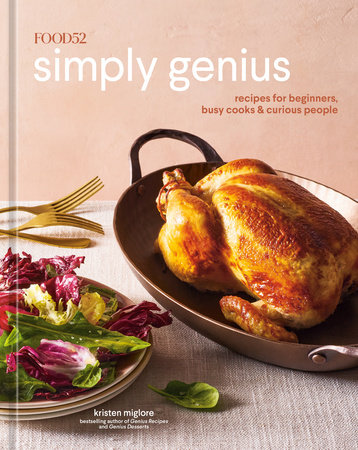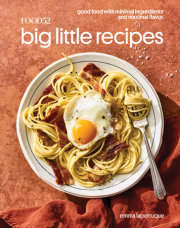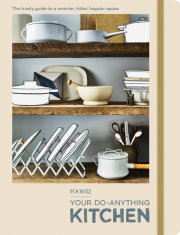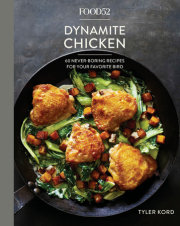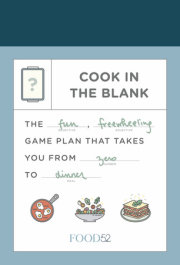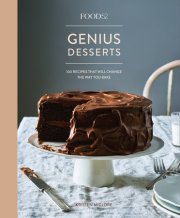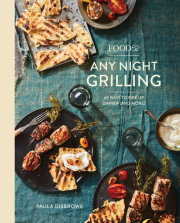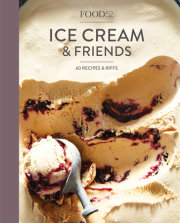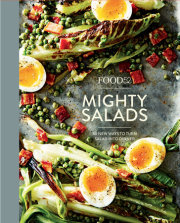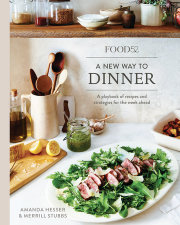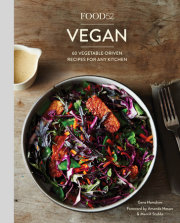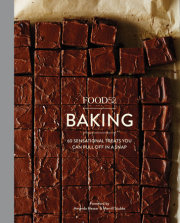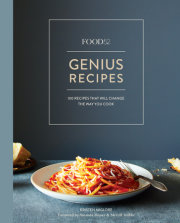IntroductionI was standing in the kitchen with my almost-two-year-old on a wooden chair next to me, passing sticky measuring spoons and cups back and forth, littering the counter and floor with oats and splats of maple syrup. While I tested Jenné Claiborne’s Tahini Pistachio Granola (page 22) in a big bowl with proper measurements, my daughter was mixing her own little freestyle batch on the side, happily eating her work along the way.
I slid the sheet pan into the oven. We wiped the counter, singing the clean up, clean up song. The kitchen air sweetened with toasting oats and sesame. Fifteen minutes later, we were blowing on clumps of warm granola and turning off the oven. My daughter hadn’t had a chance to get bored and wander away; I woke up every day that week thinking of the next bowl I’d get to eat.
When I started working on this book in 2018, long before she was born, it was meant for beginners. I pictured the recipes I’d hand to my someday-child to get her hooked on cooking—to show how much she could do in the kitchen with little effort, time, and gear.
But I didn’t realize how much I would end up needing those recipes myself over the next three years—through the stupor of early parenthood and the strain of the pandemic, then a move across the country to start again. The late-night dinner my husband and I could silently form, stirring torn pita through eggs and brown butter, knowing we might be up again in three hours, was Leah Koenig’s Fatoot Samneh (page 13) with heavy squeezes of honey. The green side that could be on our plates in ten minutes while we both tried to parent a toddler and work from home was Michele Humes’s Shishito-Style Green Peppers (page 94). The other breakfast I could tag-team with my daughter any morning she asked for it was Samantha Seneviratne’s Cocoa Almond Oatmeal (page 18). These are the recipes that fill this book: the ones that can bend around whatever life hands you, and make it better.
So whether you’re brand new to cooking or just looking for ways to make more good food with little time, what I hope you get out of this book most of all is this: a hundred or so recipes that provide outsize happiness for what they ask of you, from lofty pancakes (page 34) to the juiciest roast chicken (page 76) to maybe the best sweet potatoes of your life (page 200).
If I’ve done my job right, they’ll also point to a flash of insight that you can take with you the next time, whether you follow the recipe to a T or go your own way. Flashes like: You definitely don’t need to soak or skim dried beans, or pay much attention to them at all—they’ll be both creamier and more hands-free with Nopalito chef and owner Gonzalo Guzmán’s rule-breaking method (page 71). Ottolenghi cofounder Sami Tamimi grew up in Palestine not worrying about perfectly poached eggs in his shakshuka—and you don’t need to either (page 56).
New York Times food reporter Priya Krishna’s family always steams rice in the microwave (page 105), which, sidenote, makes it really easy to finally clean the microwave. (And so many more.)
You’ll see that the recipes are riddled with extra helpful visuals and tips in an effort to re-create holistically one of the most rewarding experiences in life and the best way to learn to cook: hanging out in someone’s kitchen watching them chop and stir, taste and adjust. Because even though I wrote down a recipe for my grandmother’s biscuits and egg gravy, I wish I’d spent even more time at her elbow while she was alive, taking pictures and nagging her with questions (she would have secretly loved it, I think). With only a list of ingredients and steps and no hand to hold, it never comes together quite right.
This book tries to fill those gaps with the intel I’ve gathered from the geniuses behind these dishes, from my own misfires and happy accidents, and from Food52 community members who generously share their own discoveries any time I ask if there are better ways to slice a bell pepper or drop potatoes into a pot of boiling water without inviting danger (there always are—page 56 and page 164).
Which brings me to the last thing I hope you take away from this book, as I have in a decade or so of testing recipes from cookbook authors and chefs, writing about them in the Genius Recipes cookbooks and column on Food52, and overanalyzing along the way: a firm conviction that if someone is telling you
the one right way to cook something, you don’t have to believe them. It might be
their right way, but it isn’t the only one. In these pages you’ll find the proof: in the soft-scrambled eggs that take 15 seconds instead of 15 minutes (page 10), the salad dressings you don’t have to stress about breaking (page 113), the chocolate chip cookies you can make right now, not in an hour when the butter’s soft (page 212).
The recipes that follow are the ones that defied what I thought I knew about cooking and, most importantly, slid easily into my life—even when I had a baby strapped to my body, then a toddler stealing my measuring spoons, and in empty kitchens upended by boxes and Bubble Wrap. They brought me and my family joy in times we needed it most. With my deepest thanks to the geniuses who created them, I hope they do the same for you.
Copyright © 2022 by Kristen Miglore, foreword by Amanda Hesser. All rights reserved. No part of this excerpt may be reproduced or reprinted without permission in writing from the publisher.




